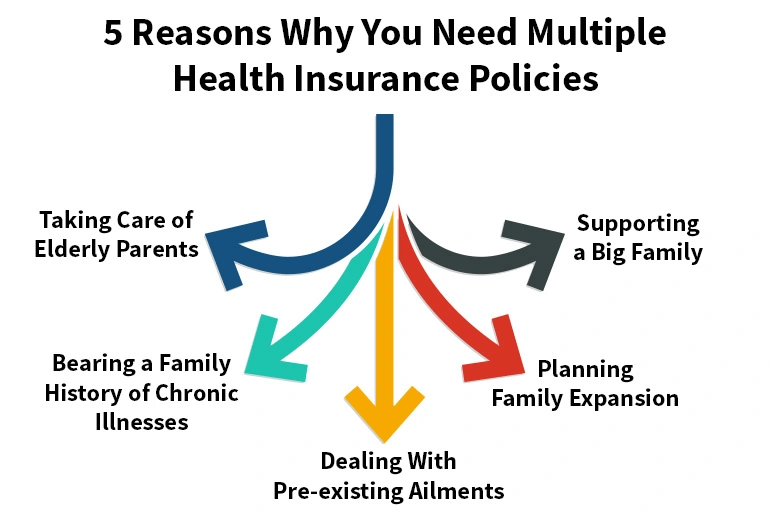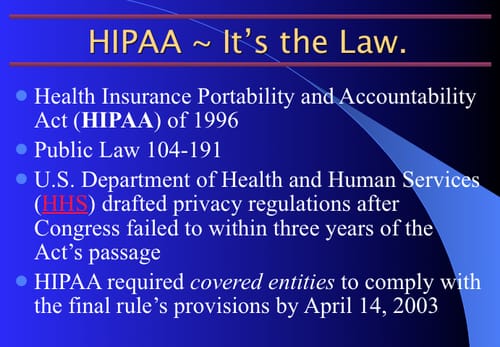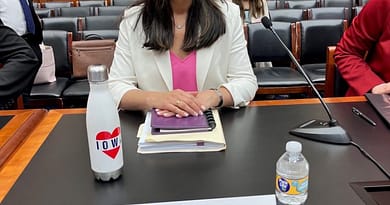My Employer Offers Health Insurance But I Can’T Afford It: A Guide to Affordable Healthcare Alternatives
My Employer Offers Health Insurance But I Can’T Afford It. Consider opting for coverage through the Healthcare Marketplace instead. Pursuing an Obamacare plan is a viable and legal option for individuals in this situation.
By exploring the online Health Insurance Exchange, you may find a plan that fits your budget and individual needs, irrespective of your employer’s offerings. This alternative route could provide a more financially feasible and suitable healthcare solution.
Consulting the Healthcare Marketplace can help you navigate the options and ensure you have access to the coverage you require without straining your finances unnecessarily.
Challenges Of Affordable Employee Health Insurance
Many employees face the challenge of obtaining affordable health insurance through their employers. Despite the opportunity to access health coverage, various barriers hinder their ability to enroll due to income constraints and high premium costs. Let’s delve into these challenges to understand employees’ difficulties when seeking affordable health insurance through their workplace.
Income Constraints
For numerous employees, income constraints pose a significant obstacle in securing affordable employee health insurance. When coverage costs exceed a certain percentage of their income, it becomes financially burdensome, making it challenging to afford the employer’s health insurance plan. This limitation prevents many individuals from accessing essential healthcare benefits, leaving them vulnerable.
High Premium Costs
The high premium costs associated with employer-provided health insurance plans can be prohibitive for employees with tight budgets. The substantial portion of income required to cover these premiums often forces individuals to choose between necessities and health coverage. In situations where the premiums outweigh the benefits received, employees are understandably hesitant to enroll in the offered health insurance, creating a dilemma that impacts their well-being.
Exploring Options
When facing the challenge of not being able to afford your employer-sponsored health insurance, exploring alternative options that may better fit your budget and healthcare needs is essential. Here are some avenues to consider:
Health Insurance Marketplace
If you find it difficult to afford your employer’s health insurance plan, you can explore the Health Insurance Marketplace. This online platform offers a range of healthcare plans at varied price points, allowing you to find a more affordable option that aligns with your financial situation.
Government Assistance Programs
Another avenue to explore is government assistance programs. Depending on your income and other eligibility criteria, you may qualify for programs that can help alleviate the financial burden of healthcare costs. These programs, from subsidies to Medicaid, are designed to support individuals who struggle to afford health insurance.
Negotiating With Employer
Discussing various ways to make health insurance more affordable with your employer can lead to favorable outcomes for both parties. By engaging in constructive conversations and exploring potential solutions, you may find viable options to address your financial constraints while maintaining access to essential health coverage.
Discussing Contribution Options
When conversations with your employer regarding health insurance costs arise, consider discussing potential contribution options that could help alleviate the financial burden. This could involve shifting the contribution percentages between you and your employer or exploring alternative ways to split the expenses more equitably.
Flexible Spending Accounts
Another avenue to explore with your employer is utilizing flexible spending accounts (FSAs) to cover eligible healthcare expenses. FSAs allow you to set aside pre-tax dollars from your paycheck for medical costs not covered by insurance, offering a tax-efficient way to manage healthcare expenses.

Credit: psychcentral.com
Seeking Alternative Coverage
Seeking alternative coverage is a viable option for those unable to afford their employer’s health insurance. Explore other options, such as purchasing insurance through the Healthcare Marketplace or health insurance exchange.
If you cannot afford the health insurance offered by your employer, don’t worry! There are alternative options available that can provide you with the coverage you need without breaking the bank. Here are two alternative coverage options to consider:
Short-term Health Insurance
Short-term health insurance plans are designed for individuals who only need temporary coverage. These plans typically provide coverage for a period of 3 months to 12 months. Although they may not offer the same level of comprehensive coverage as traditional health insurance, short-term plans can be a more affordable option for those on a tight budget.
Some key features of short-term health insurance include:
- Lower monthly premiums
- Flexibility to choose your healthcare providers
- Option to customize coverage based on your specific needs
- No restriction based on pre-existing conditions
Please remember that short-term health insurance plans do not cover pre-existing medical conditions and may not provide coverage for certain essential health benefits mandated by the Affordable Care Act.
Catastrophic Health Plans
Catastrophic health plans are another alternative option to consider. These plans protect you from high medical costs in a significant medical event or emergency. Catastrophic plans usually have lower monthly premiums than traditional health insurance plans but have higher deductibles and out-of-pocket expenses.
Critical features of catastrophic health plans include:
- Lower monthly premiums
- Protection from high medical costs in case of a catastrophic event
- No charge for preventive services
- Option to use Health Savings Accounts for tax advantages
It’s important to note that devastating health plans are only available to individuals under 30 years old or individuals who qualify for a hardship exemption. These plans do not cover routine medical expenses and are best suited for those who are generally healthy and do not require frequent medical care.
When considering alternative coverage options, carefully evaluating your specific healthcare needs and budget is crucial. Additionally, it’s always a good idea to consult with a licensed insurance professional or explore resources provided by the Healthcare Marketplace to find the best solution for your situation.
Financial Assistance Programs
Financial Assistance Programs can provide relief for individuals who cannot afford health insurance their employers offer. Medicaid Eligibility and the Children’s Health Insurance Program support those in need.
Medicaid Eligibility
To qualify for Medicaid, individuals must meet specific income requirements set by the state. Medicaid provides health coverage for low-income individuals, families, and children, including pregnant women, elderly adults, and people with disabilities.
Children’s Health Insurance Program
The Children’s Health Insurance Program (CHIP) is designed to provide health coverage to children in families with incomes too high to qualify for Medicaid but cannot afford private insurance. CHIP offers many benefits, including doctor visits, dental care, prescription medications, and immunizations for children.
:max_bytes(150000):strip_icc()/paying-for-transgender-surgeries-5184794_final-94d18ce6c2994b628384a31d63a54262.jpg)
Credit: www.investopedia.com
Impact On Health And Finances
When faced with the inability to afford employer-provided health insurance, individuals can experience significant consequences on their overall well-being and financial stability. The impact of being unable to afford health insurance can have detrimental effects on both health and finances, creating a challenging situation for many individuals.
Risk Of Medical Debt
The inability to afford employer-provided health insurance puts individuals at a higher risk of accumulating medical debt due to the financial burden of paying for healthcare services out of pocket. Medical expenses can quickly escalate without coverage, leaving individuals vulnerable to economic hardship and potential bankruptcy.
Delayed Healthcare
Moreover, the financial strain of being unable to afford health insurance may lead individuals to postpone necessary medical care, resulting in delayed healthcare. This delay can exacerbate existing health conditions, leading to more severe health issues down the line, which could have been prevented with timely treatment.
Long-term Solutions
When faced with the challenge of affording an employer-offered health insurance plan, it’s crucial to explore long-term solutions that can help alleviate the financial burden while ensuring access to necessary healthcare. Here are some proactive steps toward finding feasible long-term solutions:
Improving Financial Literacy
Improving financial literacy plays a fundamental role in addressing the issue of unaffordable health insurance. It involves understanding the basics of budgeting, saving, and investments, which can aid in managing healthcare expenses effectively. By learning about various financial tools and resources, individuals can make informed decisions and potentially identify cost-saving opportunities within their budgets.
Advocating For Healthcare Reform
Advocating for healthcare reform is essential in creating sustainable, long-term solutions for affordable health insurance. By actively participating in discussions and initiatives supporting healthcare policy changes, individuals can contribute to reshaping the healthcare system. This involvement can increase accessibility to quality and affordable healthcare options for employees, addressing the challenges associated with unaffordable employer-offered plans.

Credit: www.npr.org
Frequently Asked Questions For My Employer Offers Health Insurance But I Can’T Afford It
Can You Use Obamacare Instead Of Employer Insurance?
Yes, you can purchase insurance through the Healthcare Marketplace instead of your employer’s plan.
Can You Decline Health Insurance For A Higher Salary?
You can decline health insurance for a higher salary at some companies, but it varies.
Why Is My Health Insurance So Expensive?
Health insurance is expensive due to administrative overhead, marketing, underwriting, and claims processing, leading to higher premiums.
Who Pays If You Buy Insurance Directly From A Marketplace?
If you buy insurance directly from a marketplace, you will pay part of the premium, and the market will spend the rest. Financial assistance may be available to help you pay the monthly premiums.
Conclusion
Are you facing unaffordable employer health insurance? Explore alternative options like the Healthcare Marketplace for better coverage. Consider your health needs and financial situation to make an informed decision for your well-being. Prioritize your health without compromising your financial stability. Seek guidance to find a suitable insurance solution.












